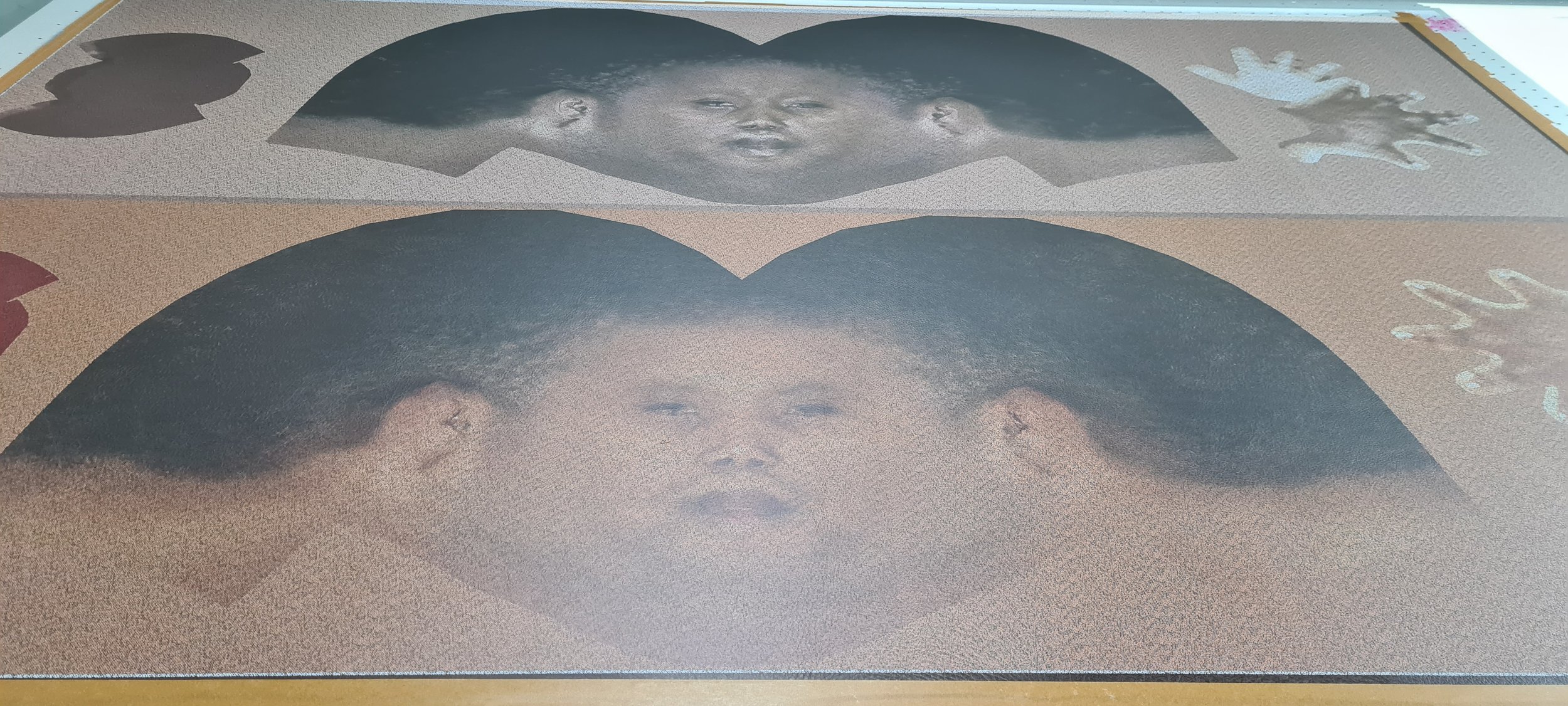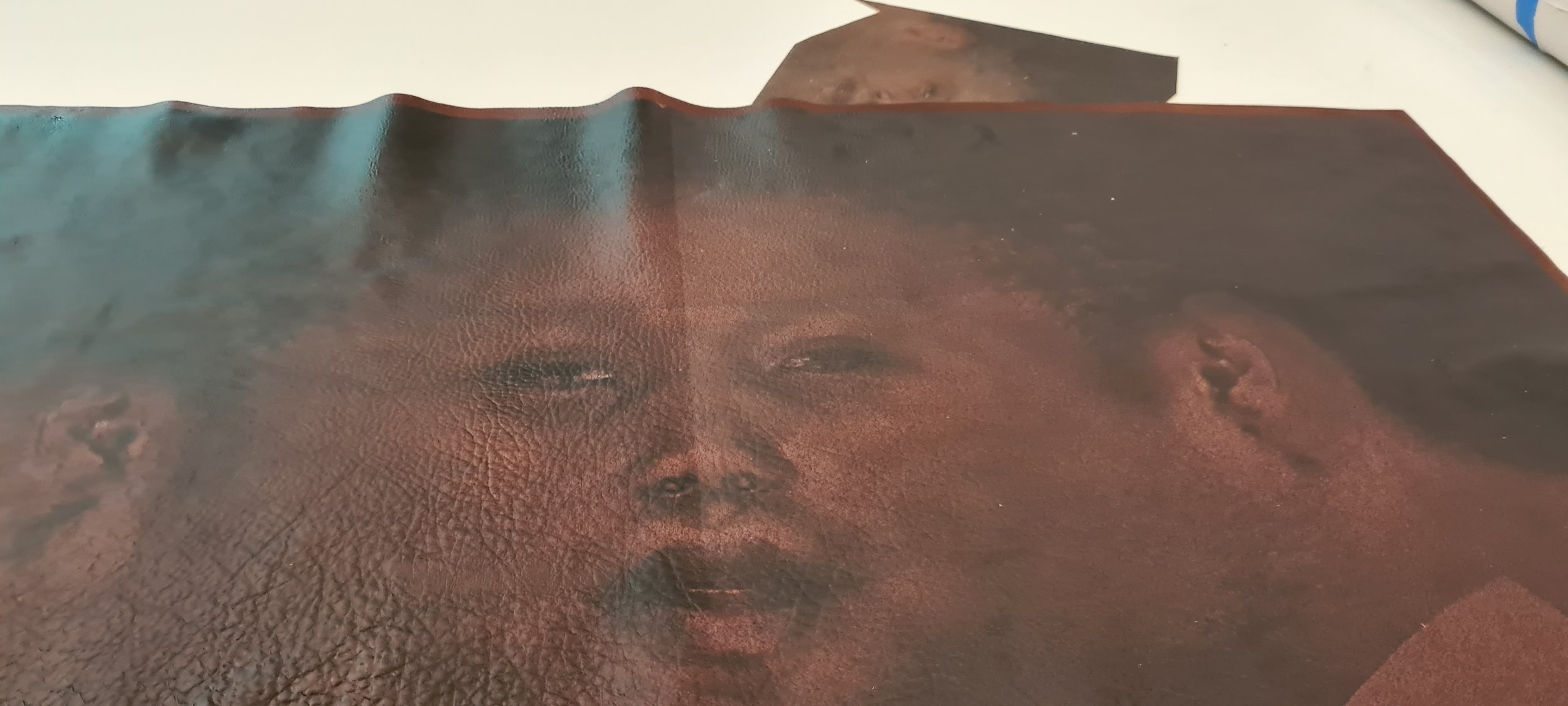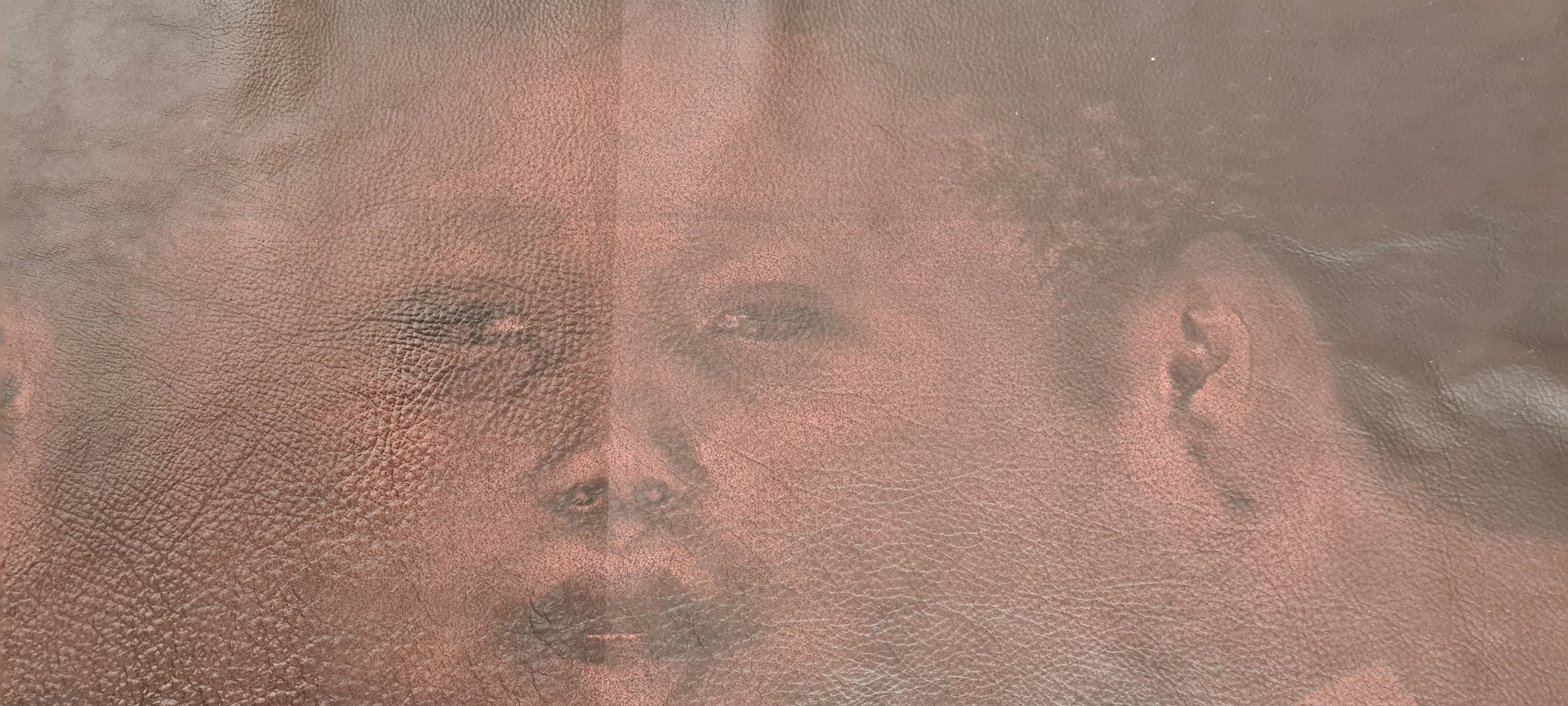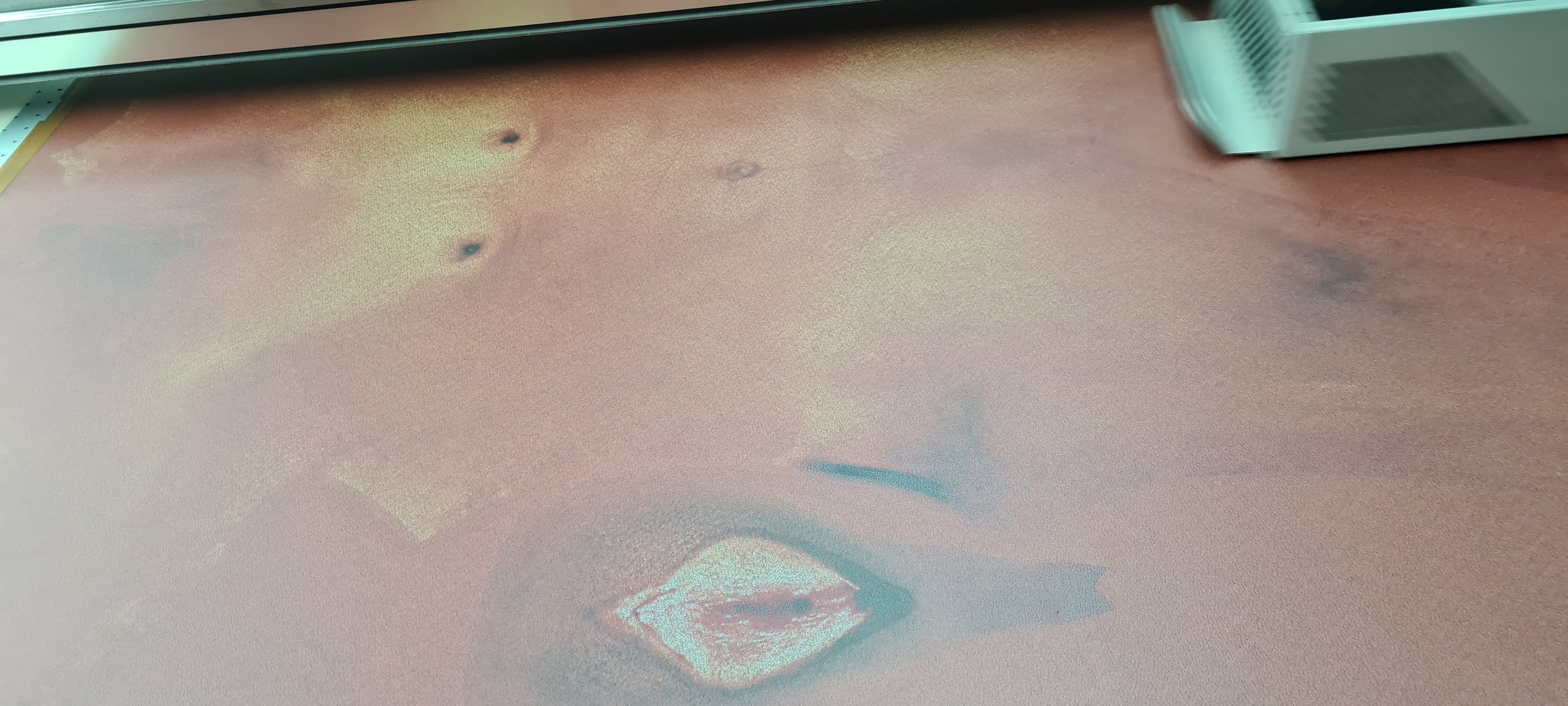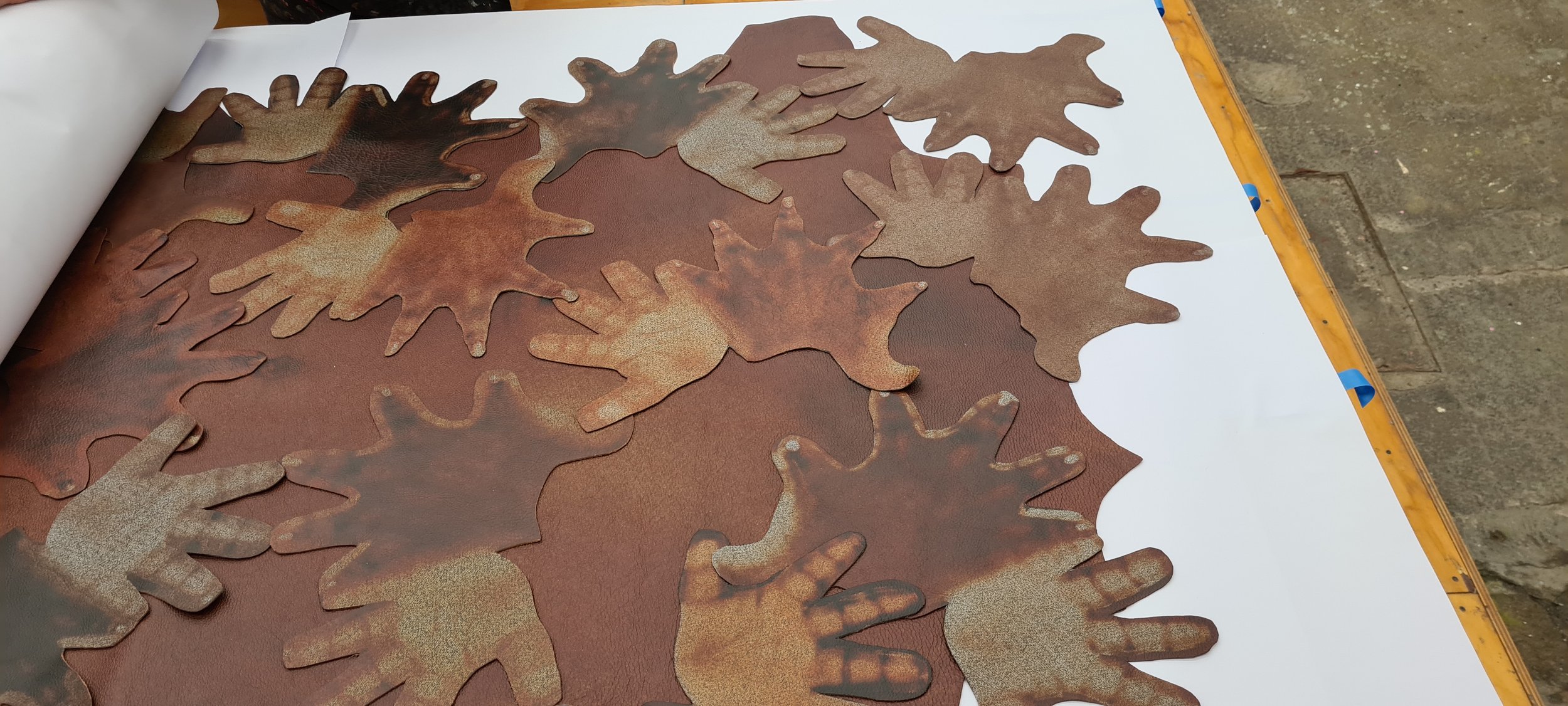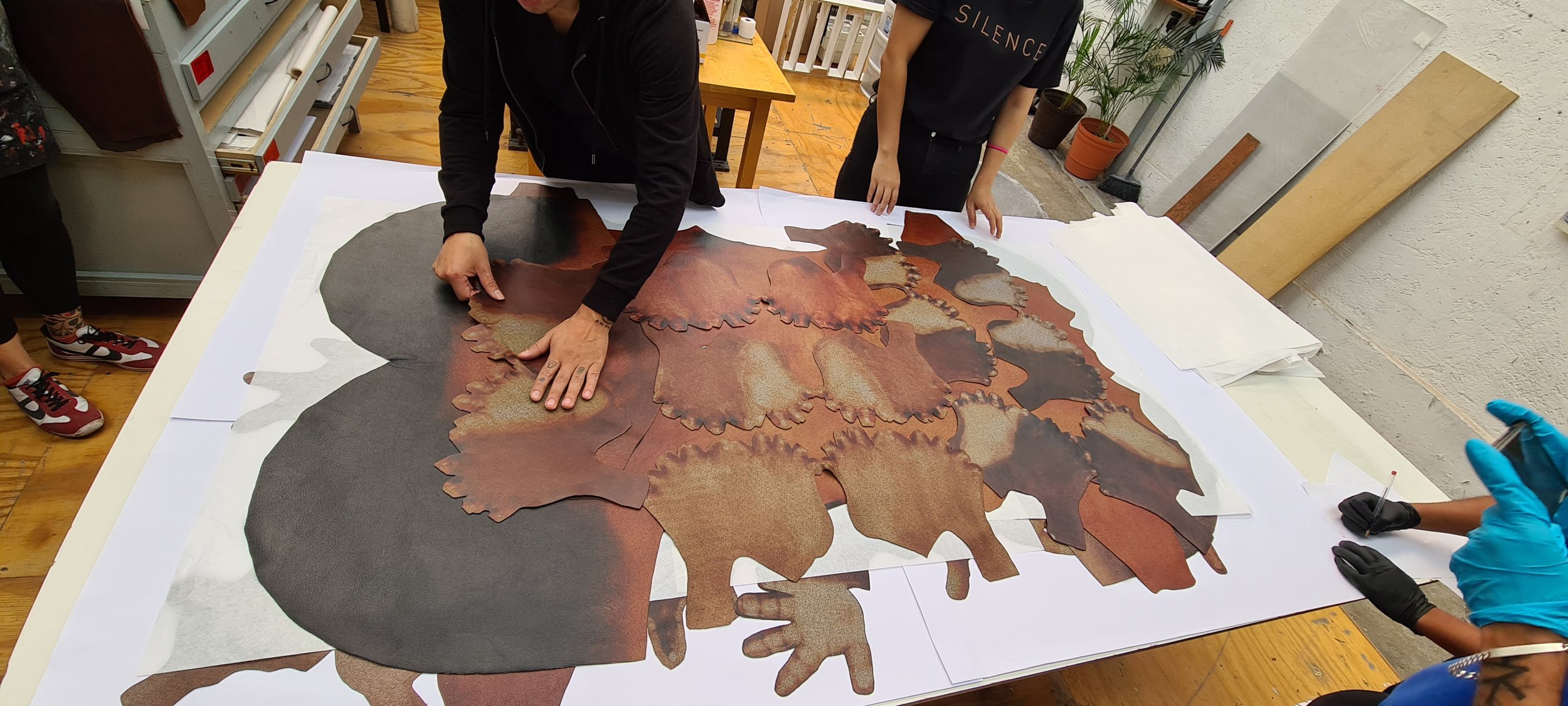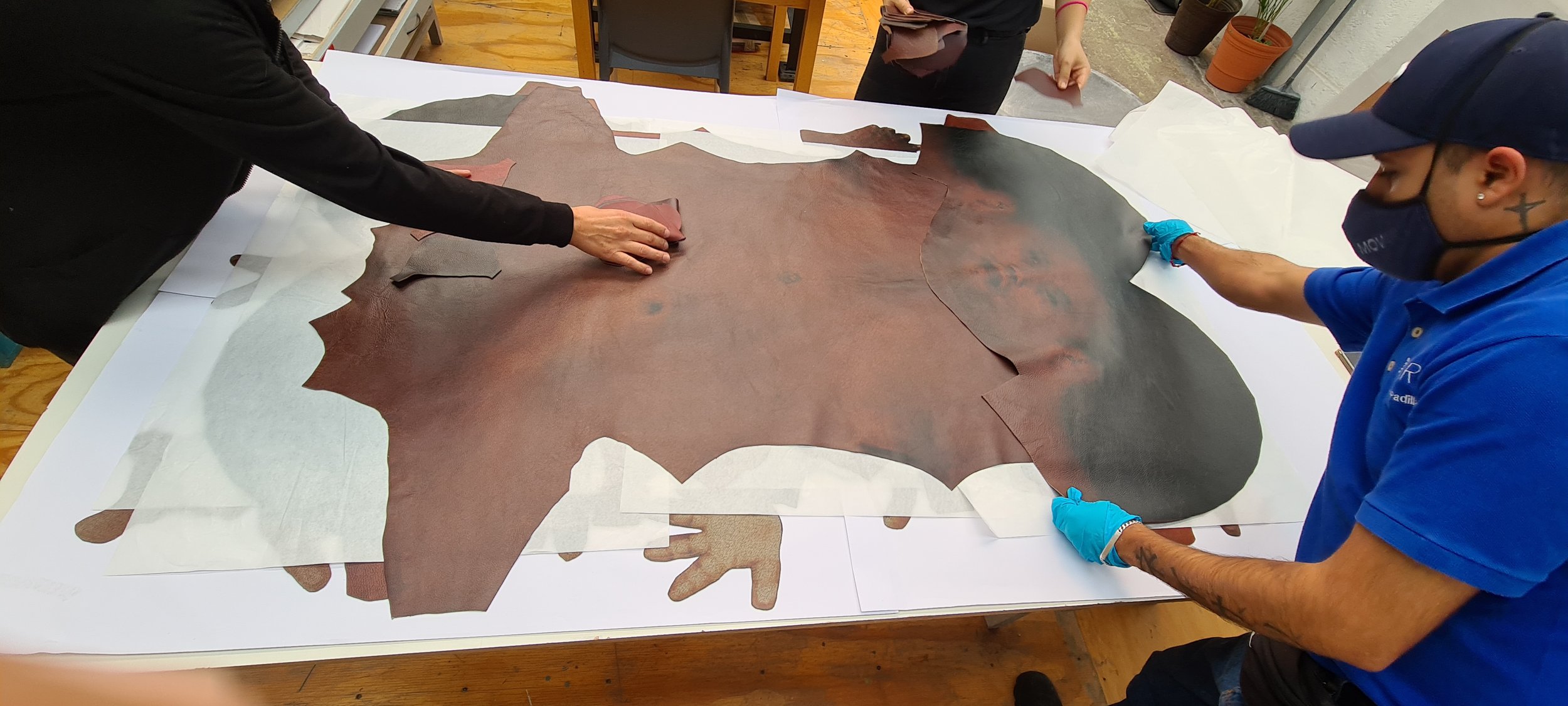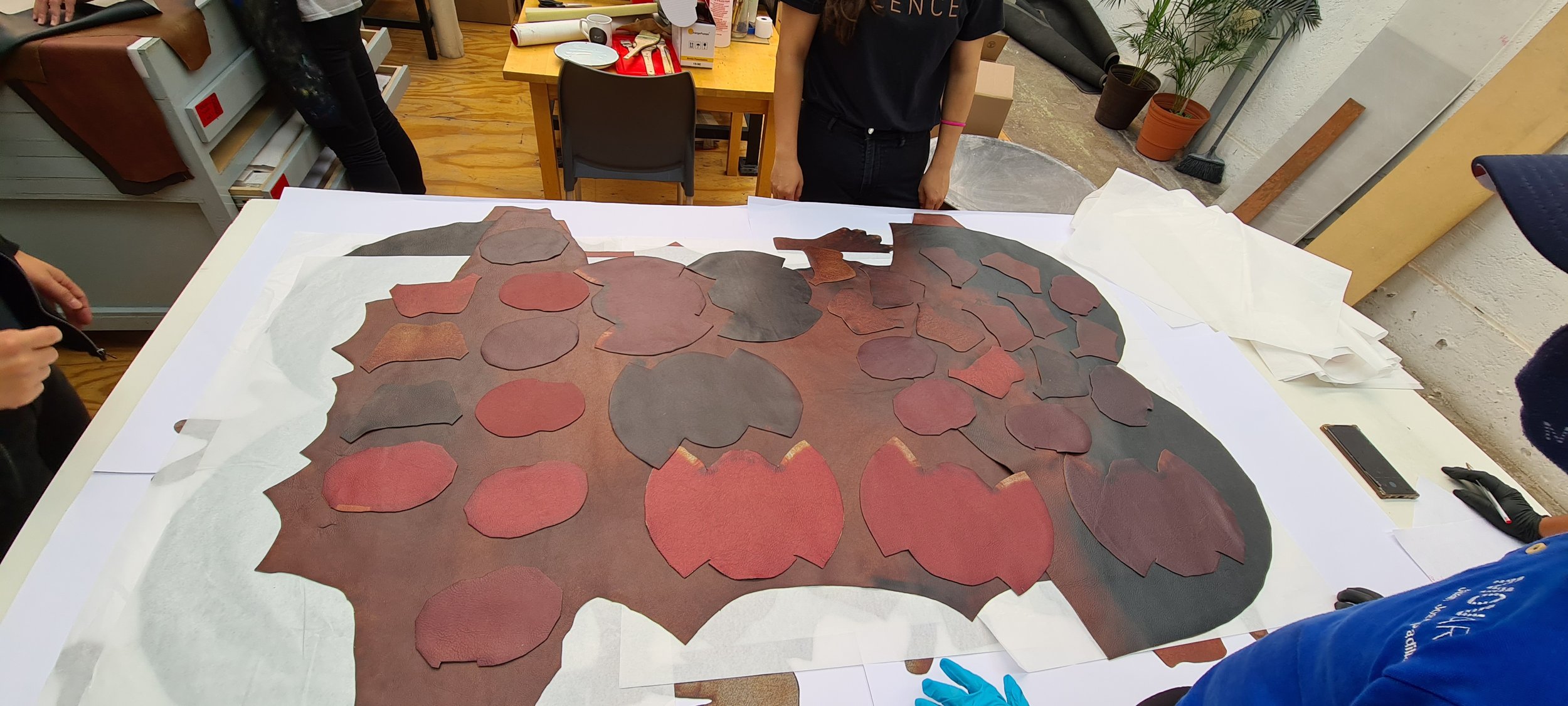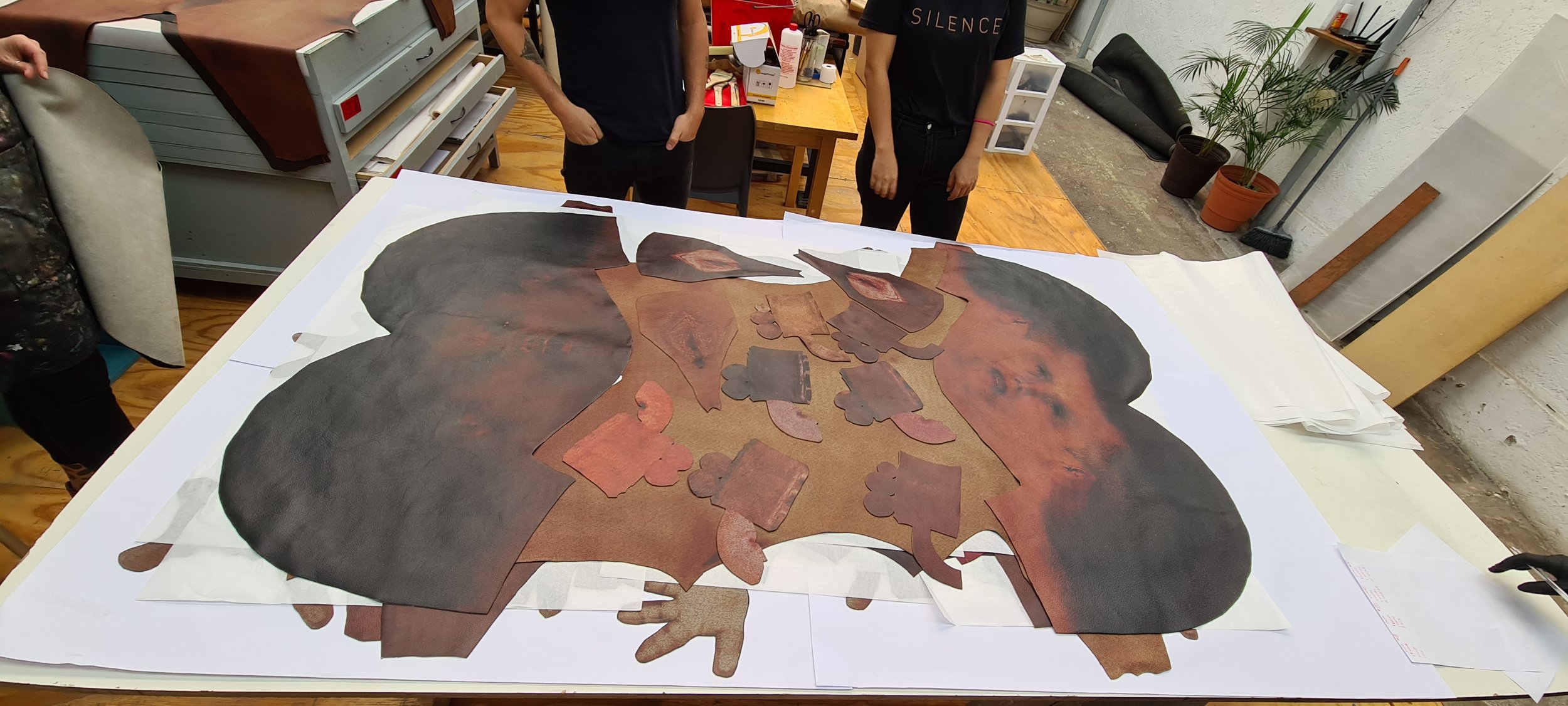Antonio Macotela
View of the installation The Q’aqchas ballade: Ghost Blankets at the 34th Bienal de Sao Paulo, 2021.
Since 2016, Macotela has worked and travelled with a group of hackers. Developing a bond of trust, Macotela created The Q’aqchas ballade: Ghost Blankets in which he parallels the hackers' work to that of the Q'aqchas, illegal miners active in Bolivia's Potosí region in the 18th century. Despite the distance of time, the power structures resonate across centuries, from the colonial system of Nova Espanha [New Spain] in Bolivia to present-day capitalism. Inequality in access to essential goods and information is continuously guarded by technologies of control and domination. Disrupting this system, the Q'aqchas organized themselves in diverse ethnic groups and worked on Catholic holidays. Like the Q'aqchas, the hackers operate within the system's loopholes, but instead of mining minerals, they extract information, the basic raw material of today's economy.
The fabric used for the installation is inspired by those brought to Nova Espanha from Asian countries and decorated with mythological scenes, in tune with the viceroyalty's power. The fabric tells a narrative of the Q'aqchas, who were exiled from official history, inspired in a carnaval’s story from the past shared by this band of miners. Yet, the fabrics were made using Jacquard looms, a machine that shares historical roots with the evolution of the digital image. For those who know how to find it, contemporary information on relationships between the political systems of a number of Latin-American countries and big multinationals is encrypted in the texture of the fabric. For security reasons, the group of hackers who made the information available remain anonymous.

